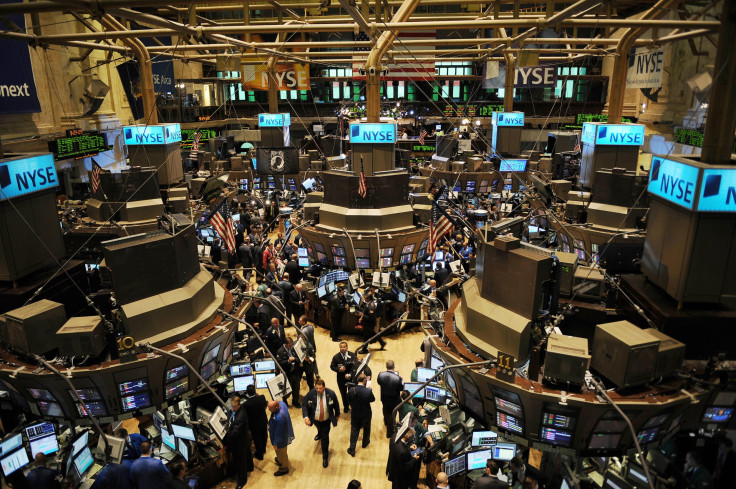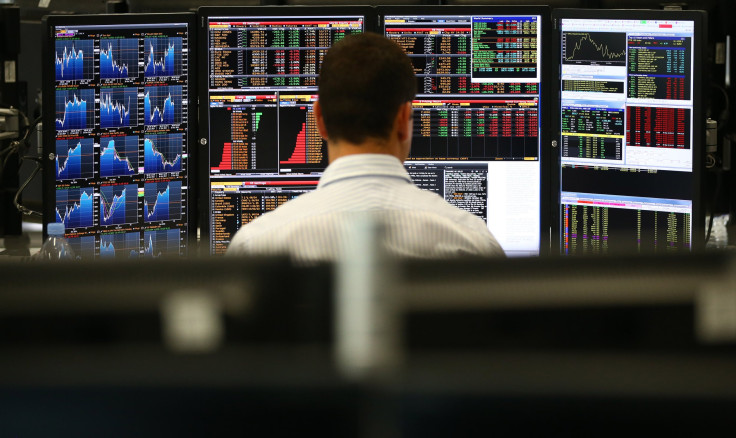Market Outlook 2015: Reading The Fed's Tea Leaves, Asian Markets Head Higher

With the September jobless figures behind them and no interest-rate hike immediately ahead of them, investors this week likely will be anticipating the release Thursday of the minutes of the Federal Open Markets Committee (FOMC) meeting last month, looking for the reasons why the U.S. Federal Reserve again delayed the first increase in its federal funds rate in almost a decade.
Also making investors nervous is whether Congress will produce a budget or engage in the brinkmanship that resulted in a downgrade of the U.S. credit rating two years ago. President Barack Obama signaled in his weekly radio address Saturday he does not support any more stopgap measures. Congress put a Band-Aid on the budget process last week by approving a continuing resolution that runs out in December.
In addition to the FOMC minutes, investors in the American markets likely will be scrutinizing this week the September Institute for Supply Management nonmanufacturing report, as well as figures on the country’s consumer credit, import prices, trade deficit and wholesale inventories. Numbers on home sales will come out the following week.
Last month's results wrapped up the worst quarter since 2011, and investors expect the downward trajectory to continue, Reuters reported.
The focus is expected to turn to quarterly earnings reports and Alcoa (NYSE:AA) traditionally kicks off the festivities. It's scheduled to report Thursday. Among the firms announcing quarterly financial results Monday are Bankrate Inc. (NYSE:RATE), Cogent Communications Holdings Inc. (NASDAQ:CCOI) and Container Store Group Inc. (NYSE:TCS).
With all that in mind, Asian stocks opened higher, with the Japanese Nikkei adding more than 1 percent and Hong Kong's Heng Seng adding nearly 2 percent. China's Shanghai Composite was closed for a holiday.

Federal Reserve Chair Janet Yellen has been signaling for many months an interest-rate hike is in the offing. As things stand, with the federal funds rate already at rock-bottom, the Fed appears to have no wiggle room should the economy take a dive.
Adam Posen, president of the Peterson Institute for International Economics, said at a conference hosted by the Federal Reserve Bank of Boston last week there is nothing that can be done to forestall another financial crisis. “The current U.S. institutional setup is likely to fail in a crisis, and will be doing less to prevent a crisis than it should be,” Posen said. He added that the current regulatory structure is a “mess,” MarketWatch reported.
Former Fed Vice Chairman Donald Kohn agreed there are deficiencies in the system, describing it as “balkanized,” and current Fed Vice Chairman Stanley Fischer said the American central bank needs new tools to prevent another bubble in the real-estate sector. According to Boston Fed President Eric Rosengren, what is lacking is a mandate from Congress giving the Fed the ability to promote financial stability.
Federal Reserve Bank of New York President William Dudley told the meeting the financial system has been made "more resilient to shocks," Morningstar reported. But, he said, regulators are a long way from " being able to successfully use [macroprudential] tools" to deal with financial imbalances.
U.S. hedge funds could see their worst year since the 2008 financial crisis, triggered by the fall-off in the biotechnology and health-care sectors, Reuters reported. “Hedge funds are reeling from a relentless rout that has all but killed a year’s worth of alpha in a matter of two weeks,” Stanley Altshuller, founding partner at research firm Novus, wrote in a report. Alpha is a risk-adjusted gauge measuring an investment’s performance in comparison with a benchmark, commonly a market index such as the S&P 500 (INDEXSP:.INX).
Friday’s employment report, showing the American economy created only 142,000 jobs in September, was largely discounted by U.S. equity traders, but it sent the Bloomberg Dollar Spot Index to a two-week low, the beginning of a depreciation that could prevent a December interest-rate rise.
“I’m struggling to find anything positive out of this -- the dollar selling is probably going to continue,” Pete Karabatos, a senior foreign-exchange trader at Silicon Valley Bank in Santa Clara, California, told Bloomberg News.
© Copyright IBTimes 2025. All rights reserved.





















